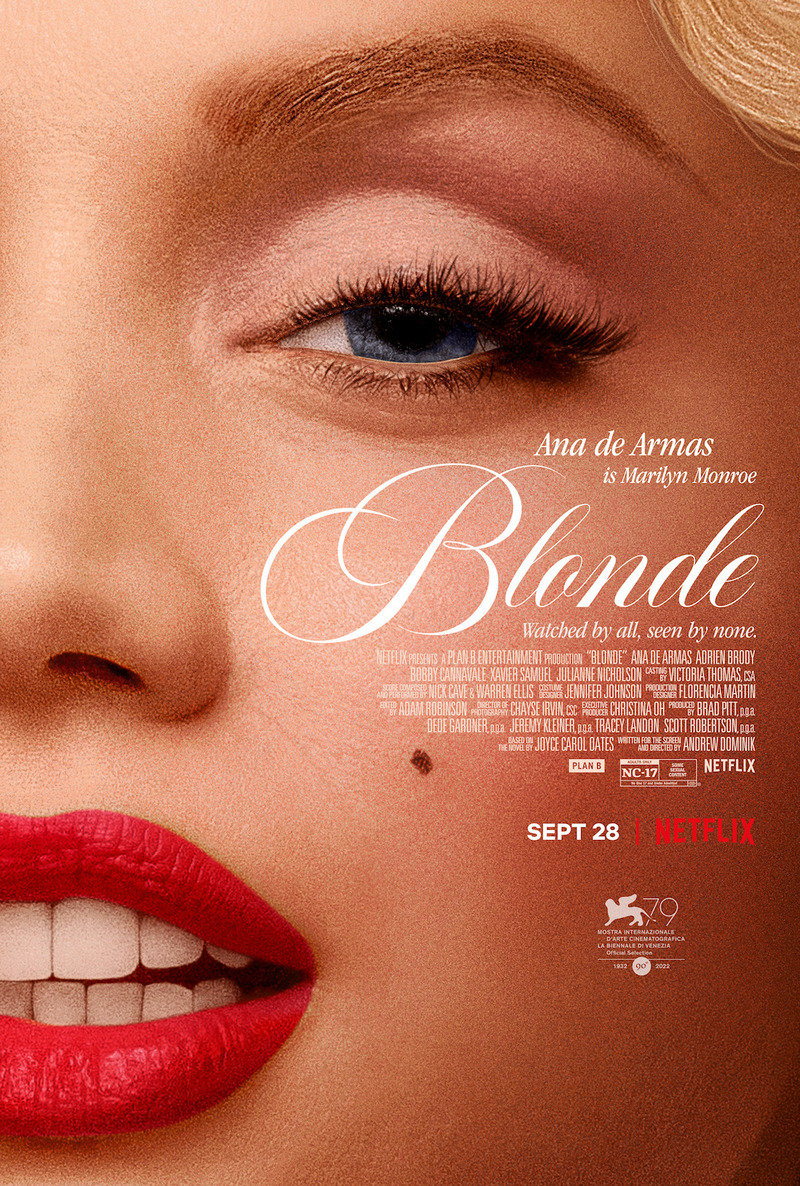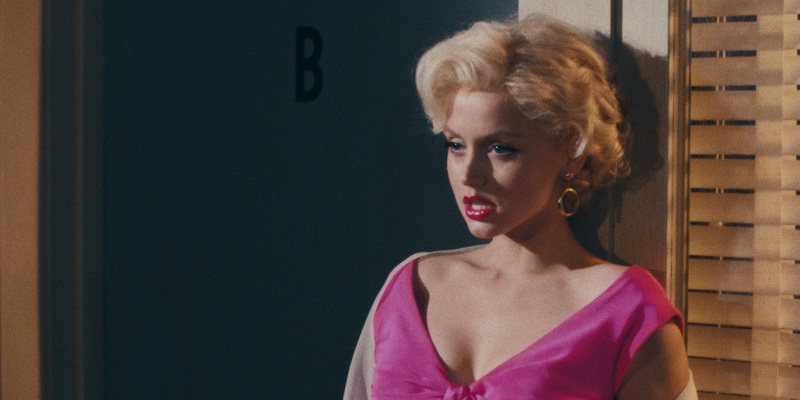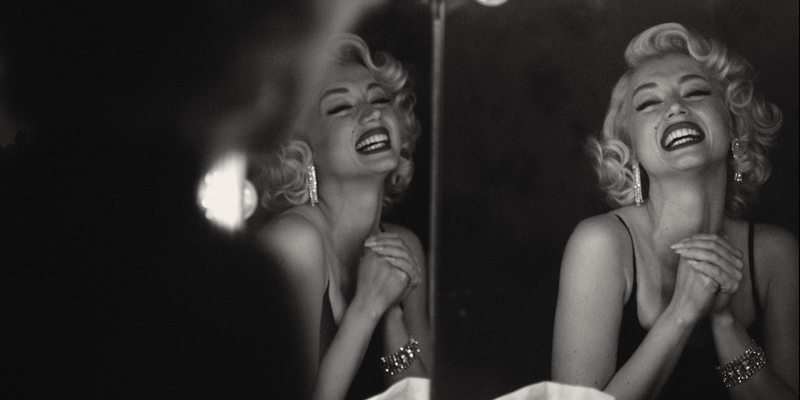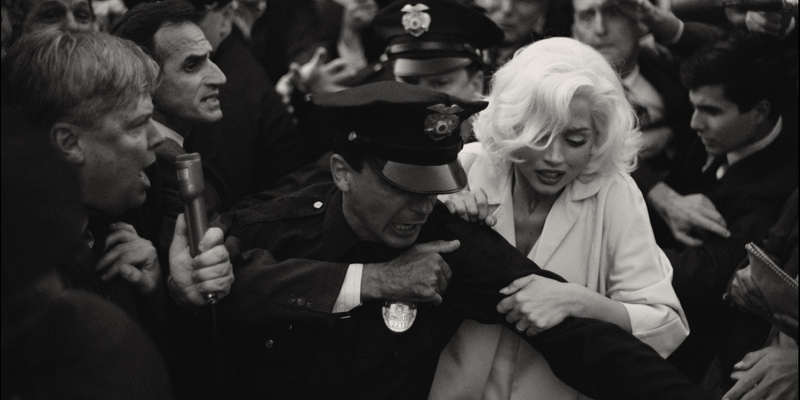
Review by
Eric Hillis
Directed by: Andrew Dominik
Starring: Ana de Armas, Bobby Cannavale, Adrien Brody, Julianne Nicholson, Xavier Samuel, Evan
Williams

Hot on the sequined heels of Baz Luhrmann's
Elvis, another Australian filmmaker "treats" us to their take on an American pop
culture icon. If Luhrmann's film felt like it was fuelled by cocaine,
Andrew Dominik's Blonde (adapted form the
Joyce Carol Oates novel of the same name) is closer to heroin. It's a
scuzzy, grimey take on the life of Marilyn Monroe that focusses almost
exclusively on her troubles, the negative of Tim Burton's
Ed Wood.

David Lynch was famously set to make a Monroe biopic before he transposed
the image of America's sweetheart onto Twin Peaks' tragic prom queen Laura Palmer. At the time of its release, it was
heavily surmised that Fire Walk with Me represented Lynch
making that Monroe movie in a different form. Like Dominik's film,
Fire Walk with Me forces us to watch as its blonde heroine is
tortured and defiled, both physically and psychologically. The difference is
that Lynch gave us two seasons of a TV show to get to know Palmer, and it's
clear that she's a character he cares about. You never get the impression
that Dominik gives two hoots about Monroe - she's simply a convenient sharp
stone against which he's grinding an axe.

Managing to emerge from this fiasco with some dignity is
Ana de Armas. She does a very fine impression of Monroe, though
that's all it really is, an impression. That's not a knock on de Armas, it's
simply all the film asks of her. We never feel like we're watching the real
Monroe, if there ever was such a thing, because de Armas' performance seems
based on Monroe's acting. But that may well be the point, that Monroe's life
was merely an act.

By portraying Monroe solely as a victim, the film removes her agency. The
actress is always held up as a counterpoint to the dumb blonde stereotype,
given how well read and seemingly intelligent she was, but the movie never
conveys this side of the star. Whenever Monroe tells someone that she's read
Dostoevsky or Chekhov she's met with condescending guffaws, but this shallow
version of Monroe doesn't convince as someone with such interests. Dominik
surrounds Monroe with leering men who see her only as a piece of meat, but
that's how his own film views her. He doesn't care about Monroe the human,
just Monroe the victim. Anyone introduced to Monroe through this film (it
should be mentioned that not one of her movies is available on Netflix) will
likely come away with the impression that she only became a star because of
her looks. Of course, her looks certainly didn't hurt her career, but women
with Monroe's figure were stepping off busses every two minutes in Hollywood
during this era. If the powerful men of Hollywood simply wanted Monroe for
her body they would have just kept her holed up in an apartment. They made
her a star because she had star power, and star power makes money. The world
fell in love with Monroe beyond her sex appeal (her most avid fans are gay
men and straight women after all), and by his seeming inability to
understand that, Dominik is as superficial as the men he seeks to
demonise.


